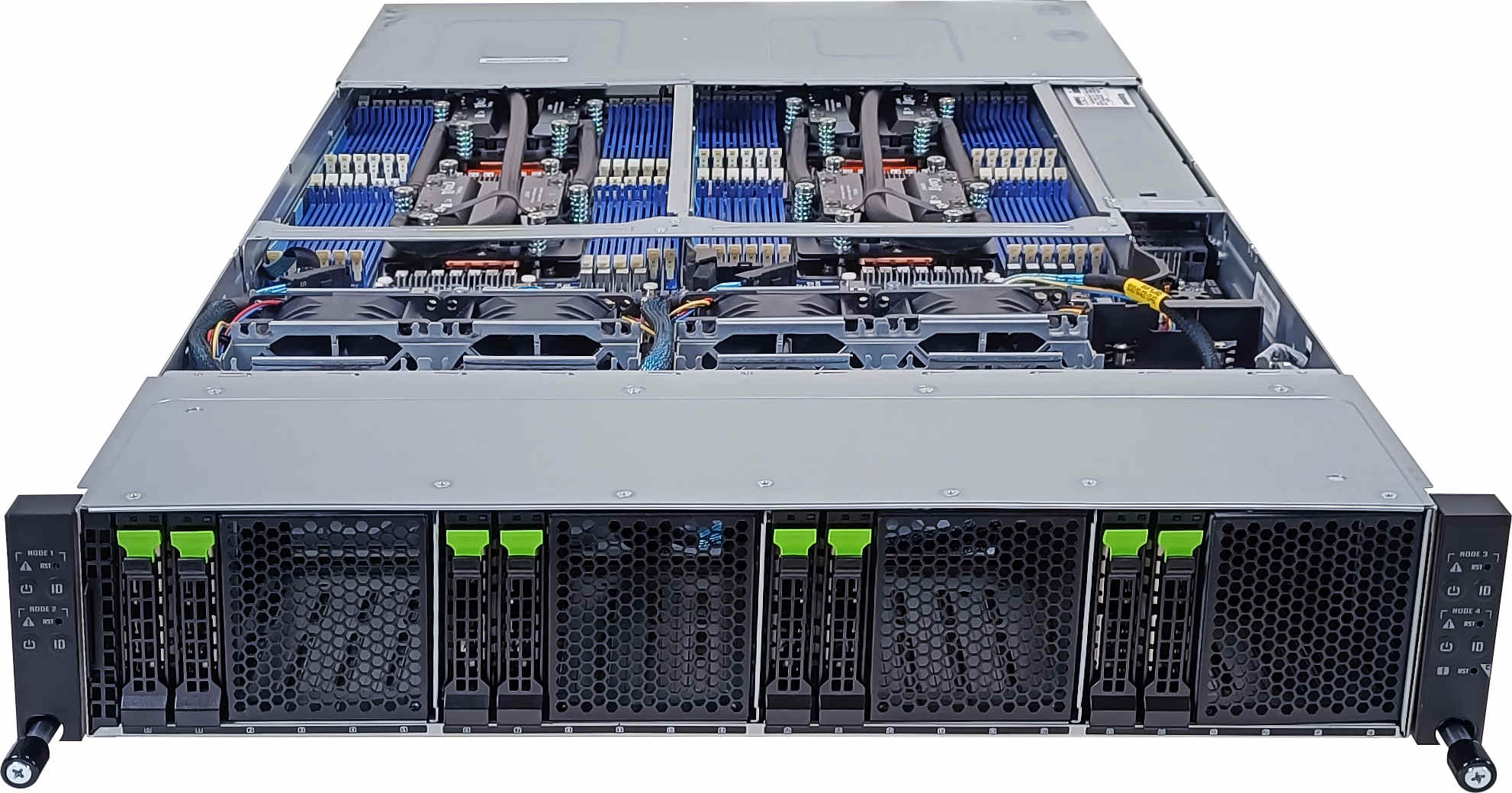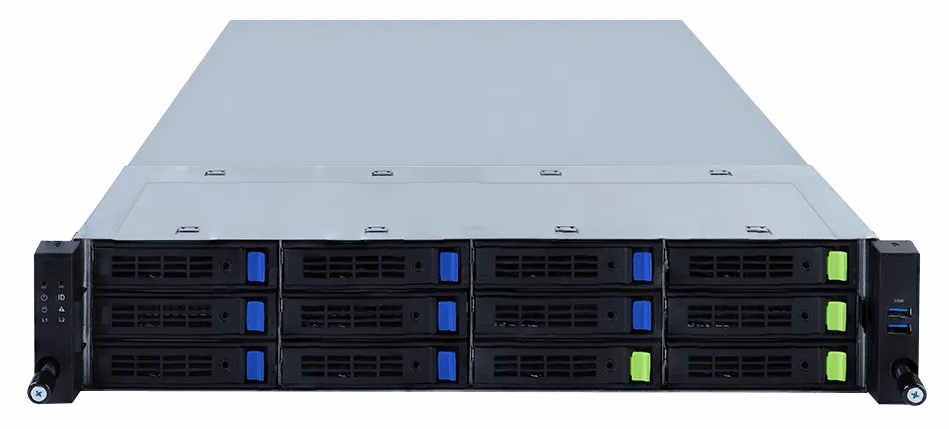GPU available
1. GPU Cluster Nautilus
1.1. Gnode GPU compute servers[1-4]
1.1.1. Hardware configuration
gnode[1-4] are GPU compute servers with 4 Nvidia A100 cards. Hardware configuration
The gnode[1-4] servers are Bullx X410-A6 4U1N2S composed of:
2x AMD EPYC Genoa 9474F 48-Core |
768GB of DDR5 memory @4800MT/s |
1x 960GB SSD |
4x GPU NVidia A100 80GB passive PCIe4x16-no CEC |
2x 1GbE RJ45 ports |
1x CNX4 25GbE DP OCP3.0 PCIe3.0 x16 SFP28 Ethernet Card |
1x Infiniband ConnectX-6 SP HDR EDR card 100Gb QSFP56 PCIe3x16 |

|
2. Hardware configuration
2x AMD EPYC Genoa 9474F 48-Core |
768GB of DDR5 memory @4800MT/s |
2x 960GB SSD |
2x GPU NVidia A40 48GB passive PCIe4x16-no CEC |
2x 1GbE RJ45 ports |
1x CNX4 25GbE DP OCP3.0 PCIe3.0 x16 SFP28 Ethernet Card |
1x Infiniband ConnectX-6 SP HDR EDR card 100Gb QSFP56 PCIe3x16 |

|
3. Slurm Constraint
To easily launch jobs from any front end, we have implemented constraint relating to particular configurations of clusters and nodes. These constraints allow you to target the desired nodes, especially if you are not on the target cluster.
To use them, add the Slurm --constraint=<constraint_name> option
| if you do not specify a partition then the calculations will start on the default partition. On Nautilus it is the "standard" partition |
Example : To request a feature/constraint which allows you to specify an a100 gpu which is a gnode de Nautilus , you must add the following line to your submit script:
#SBATCH --constraint="loc_ecn&gpu_a100_80"
3.1. Slurm gres
GRES (Generic Resource Scheduling) in SLURM manages and allocates specialized resources like GPUs. It ensures proper GPU allocation to jobs by specifying resources with #SBATCH --gres=gpu:<number>. This optimizes hardware usage and prevents resource conflicts.
Here’s an example of using GRES for requesting GPUs in a SLURM job script:
#SBATCH --gres=gpu:2
This requests 2 GPUs for the job.
4. Cuda
CUDA Compatibility Matrix
When using CUDA applications like in this GLiCID tutorial, you must ensure that the NVIDIA driver, CUDA toolkit, and GPU hardware are compatible. NVIDIA publishes an official matrix to help match driver versions with CUDA releases.
Official NVIDIA CUDA Compatibility Guide: CUDA Compatibility Guide
5. Quick Reference Table (extract)
| CUDA Toolkit Version | Minimum Driver Version | Example Supported Driver Range |
|---|---|---|
CUDA 12.2 |
>= 535.54.03 |
535.xx and newer |
CUDA 12.0 / 12.1 |
>= 525.60.13 |
525.xx and newer |
CUDA 11.8 |
>= 520.61.05 |
520.xx and newer |
CUDA 11.4 – 11.7 |
>= 470.57.02 |
470.xx and newer |
CUDA 11.0 – 11.3 |
>= 450.80.02 |
450.xx and newer |
CUDA 10.2 |
>= 440.33 |
440.xx and newer |